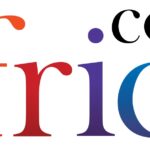Telemedicine startups in Africa are making significant strides in revolutionizing healthcare delivery across the continent. With a focus on accessibility, affordability, and innovation, these companies are setting new standards for inclusive and scalable healthcare solutions.
One of the key impacts of these startups is the reduction in late-stage disease cases and increased access to healthcare services. For example, Rocket Health in Uganda has reduced late-stage disease cases by 40%, while Mobihealth International in Nigeria facilitated over 150,000 remote consultations. These success stories showcase the potential of telemedicine to transform healthcare outcomes in Africa.
The key drivers behind the growth of telemedicine in Africa include reliable connectivity and affordable device access. With countries like Kenya boasting an impressive 81% 3G coverage, governments are also stepping in to close connectivity gaps in rural areas. Additionally, startups are focusing on producing smartphones priced under $100 to make healthcare services accessible to a wider population.
In terms of tech innovations, African startups are leveraging AI tools like Babyl’s chatbot to handle thousands of daily consultations with high accuracy. USSD and SMS solutions are also being used to cater to basic phone users, ensuring that no one is left out of the telemedicine revolution.
Partnerships with governments, insurers, and other institutions have been instrumental in scaling telemedicine services and reducing wait times. For instance, collaborations between Rocket Health and the Ministry of Health in Uganda have revolutionized HIV treatment, while Mobihealth International’s partnership with the Nigerian Air Force has set up telehealth clinics across military bases.
Flexible payment models, such as mobile wallets and subscription plans, are also making healthcare more affordable for users. Companies like M-TIBA are leading the way in offering convenient payment options, ensuring that cost is not a barrier to accessing quality healthcare services.
Overall, African telemedicine startups are demonstrating the power of localized tech solutions, strategic partnerships, and affordable payment options in driving the growth of telemedicine in the region. By prioritizing accessibility and inclusivity, these companies are paving the way for a healthier and more connected future for Africa. International groups play a crucial role in supporting and enhancing mobile telemedicine initiatives in Africa. These collaborations showcase how merging institutional resources with innovative technology can quickly scale up solutions to address specific healthcare needs. By focusing on utilizing existing infrastructure and implementing targeted tech solutions, these partnerships are able to make a significant impact on healthcare access in the region.
One key aspect that international groups contribute to is the development of new payment models that make healthcare more accessible by reducing financial barriers. These approaches often combine mobile technology with flexible payment systems, ensuring that medical services are within reach for individuals at different income levels. For example, in Kenya, the integration of M-TIBA with M-Pesa mobile money services has reduced transaction costs by 30% for low-income patients. This setup allows users to save and pay for healthcare through secure digital wallets, making it easier for them to access essential medical services.
In Tanzania, Vodacom offers bundled airtime purchases that include telehealth consultations for just $0.30, providing users with both data and medical assistance at an affordable price. These payment models not only reduce costs for patients but also increase the uptake of telemedicine services, with an 18% increase in first-time users reported.
Furthermore, startups are addressing income instability by offering installment-based payment plans. For instance, Quro Medical’s ‘pay-as-you-test’ model allows users to pay $2 monthly for health screenings, leading to a 45% increase in testing rates in low-income areas. Similarly, CribMD in Nigeria provides tiered subscription plans starting at ₦2,500 ($6) per month, offering unlimited consultations and discounts on medications to users based on their financial situation.
Offline payment options have also proven effective in ensuring reliable payments even in areas with poor internet connectivity. Micro-insurance models like Rwanda’s Mutuelle de Santé program, integrated with the Irembo e-government portal, offer prepaid telehealth consultations at just $0.50 per session, making regular healthcare consultations more affordable for a larger population.
Overall, the collaboration between international groups and local organizations in Africa is essential for driving the expansion of mobile telemedicine in the region. By focusing on partnerships, tailored technology solutions, and innovative payment methods, these initiatives are able to overcome infrastructure challenges and provide essential healthcare access to underserved communities. With the continued growth of AI-powered diagnostic tools and hybrid service models, the sector is poised for further expansion and scalability, ultimately improving healthcare outcomes for individuals across the continent. The world of technology is constantly evolving, with new advancements and innovations being made every day. One area that has seen significant growth in recent years is artificial intelligence (AI). AI is the development of computer systems that can perform tasks that typically require human intelligence, such as visual perception, speech recognition, decision-making, and language translation.
One of the most exciting applications of AI is in the field of healthcare. AI has the potential to revolutionize the way medical professionals diagnose and treat patients, ultimately improving patient outcomes and reducing healthcare costs. Here are some ways in which AI is being used in healthcare:
1. Diagnostic imaging: AI algorithms are being used to analyze medical images, such as X-rays, MRIs, and CT scans, to assist radiologists in detecting abnormalities and making accurate diagnoses. AI can help speed up the process of interpreting images, leading to quicker diagnosis and treatment for patients.
2. Predictive analytics: AI can analyze large amounts of patient data to predict disease progression and identify high-risk patients who may benefit from early intervention. This can help healthcare providers tailor treatments to individual patients, leading to better outcomes and reduced healthcare costs.
3. Virtual health assistants: AI-powered virtual health assistants can provide patients with personalized medical advice, answer questions about their symptoms, and even schedule appointments with healthcare providers. This can help patients access care more easily and reduce the burden on healthcare providers.
4. Drug discovery: AI algorithms are being used to analyze vast amounts of data to identify potential drug candidates for various diseases. This can help accelerate the drug discovery process and lead to the development of new treatments for conditions that currently have limited options.
5. Remote monitoring: AI-enabled devices, such as wearables and smartphone apps, can monitor patients’ vital signs and alert healthcare providers to any abnormalities. This can help patients manage chronic conditions more effectively and reduce the need for frequent hospital visits.
While AI has the potential to revolutionize healthcare, there are also challenges that need to be addressed. These include concerns about data privacy and security, the need for regulatory oversight, and the potential for bias in AI algorithms. However, with careful planning and collaboration between healthcare providers, technology companies, and regulators, AI has the potential to transform the healthcare industry and improve patient care.








